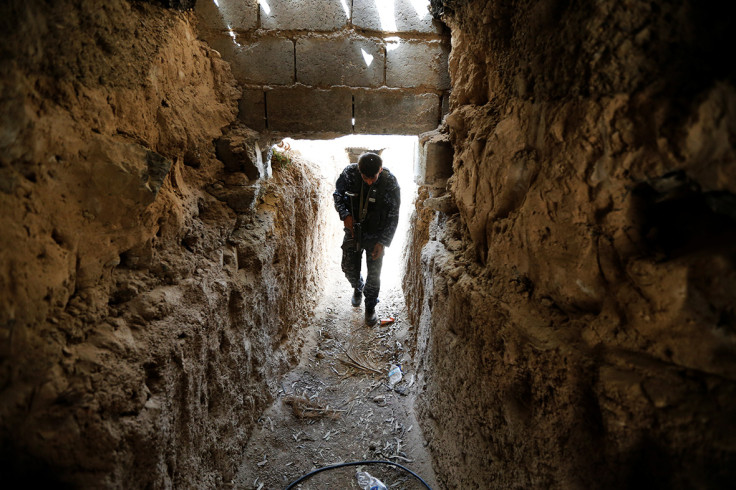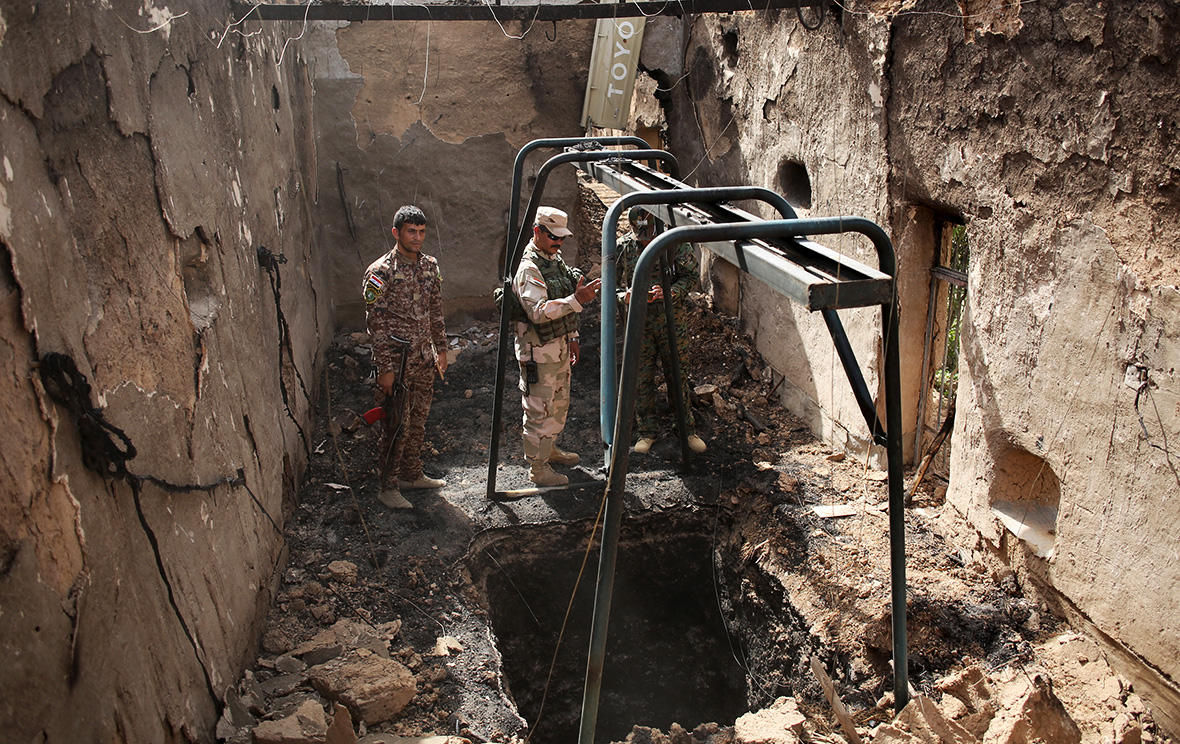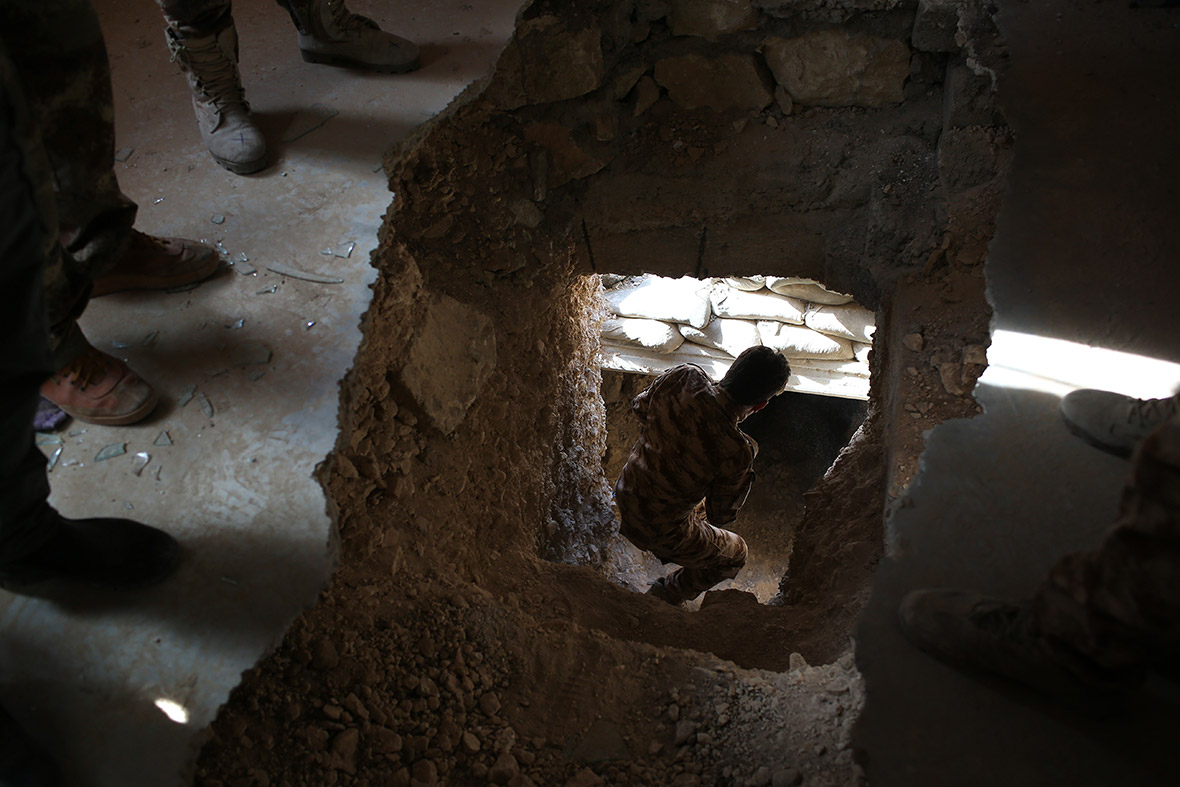Battle for Fallujah: Isis sniper 'moles' use four-mile-long tunnel to stall Iraq offensive

A four-mile-long tunnel hidden beneath the Islamic State-held city of Fallujah – where the group's fighters sleep and hide – has played a pivotal role in the militants' counter offensive against Iraqi forces.
The Times reported that popular mobilisation forces, predominantly Shia pro-government militias, uncovered a two-meter-high tunnel believed to be the longest such Isis passage ever discovered. The tunnel, discovered in Saqlawiyah, an agricultural area to the north of Fallujah, was described as a vital artery for weapons and supplies in Isis defence.
"Isis counted on the strategy of tunnels to reduce their causalities and to protect and connect three front lines," Udai Khadran, a militia commander was quoted as saying.
Hussain Mustafa, a Shia militiaman, told the Times "Isis use the tunnels to avoid airstrikes — when pilots are trying to strike they can't find them."
The Islamic State (Daesh) was able to use the sophisticated tunnels to deploy snipers, which supported suicide bomb attacks in Fallujah on 31 May. The four-hour assault stalled Iraqi forces' offensive in the city which has involved tens of thousands of troops.
The UN has warned that 50,000 civilians risk being used as human shields by the Islamic State in Fallujah. Around 3,700 people – 624 families – have fled Fallujah since the new offensive by Iraqi forces to retake the city began last week, according to figures provided by Iraqi authorities.
About 1,300 of those people are staying in al-Iraq camp in the Amiriyat al-Fallujah district in Anbar governorate, where the UN's refugee agency, UNHCR, is working. Others are scattered in one of several other government-run camps in the district or are staying with relatives.
In December, amid the wreckage of the Iraqi town of Sinjar, Kurdish peshmerga forces, which recaptured the town from Islamic State (Isis/Daesh) in November, have discovered a network of tunnels buried deep underground. Hidden from sight beneath the streets and shattered buildings, IS militants dug the tunnels, wired with electricity and fortified with sandbags, to protect themselves from coalition air strikes and prepare defences against the Kurdish onslaught.

















© Copyright IBTimes 2025. All rights reserved.





















